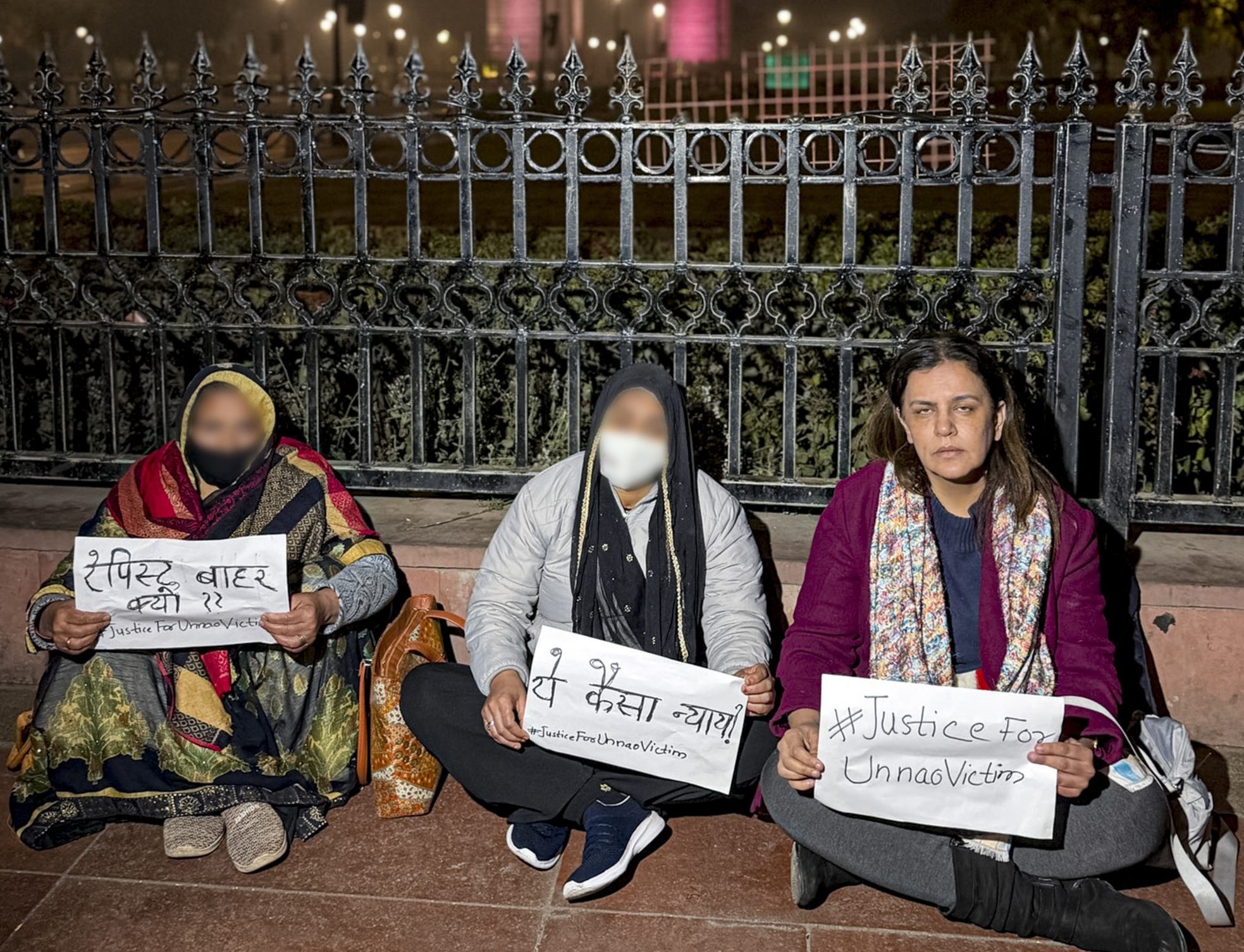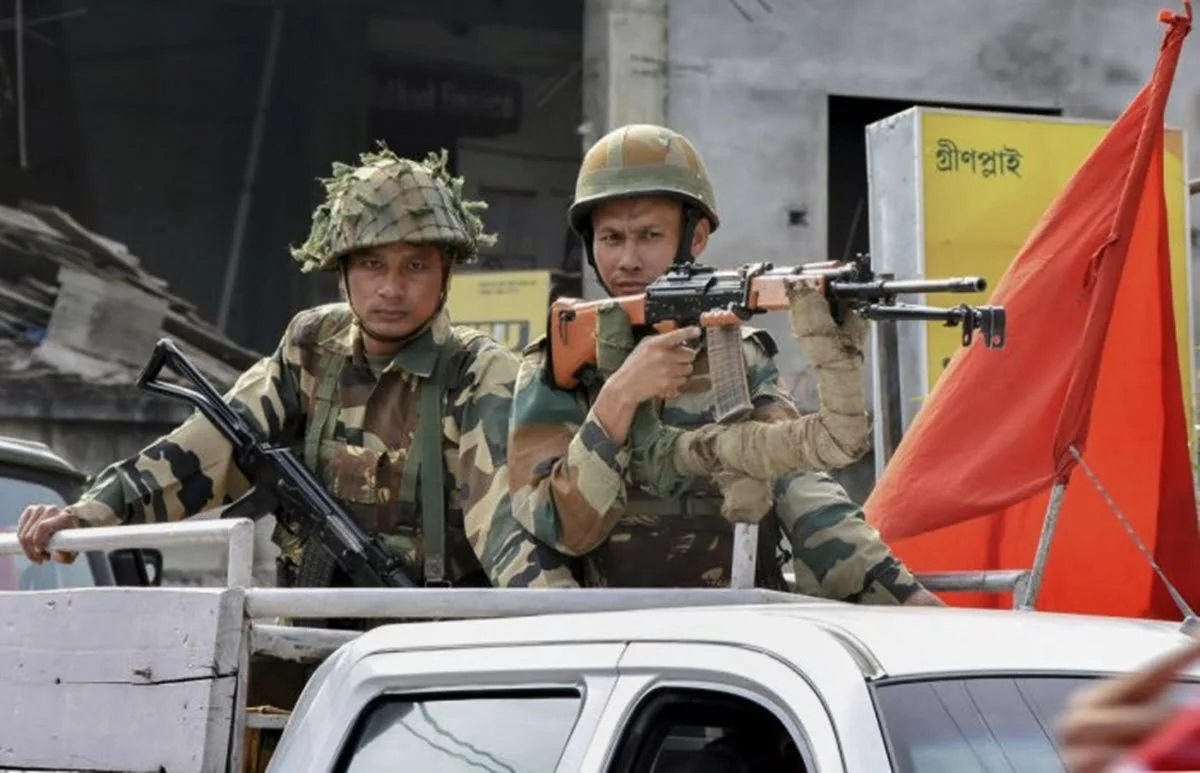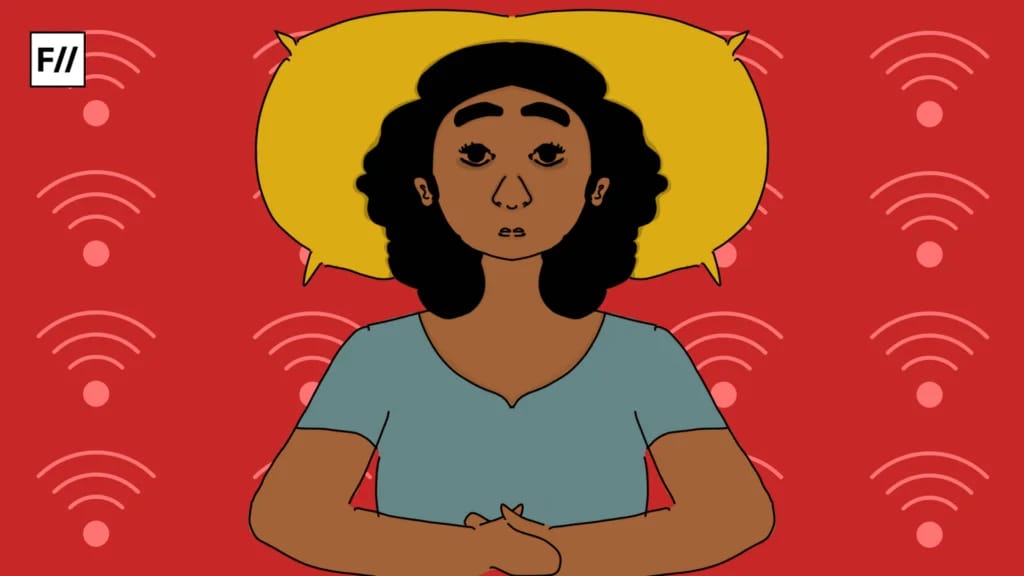This article is part of the #GBVInMedia campaign for the 16 Days Of Activism global campaign to end gender-based violence. #GBVInMedia campaign analysis how different kind of mainstream media (mis)represents/reports gender-based violence and broadens the conversation from violence against women to violence against people from the queer community, caste-based violence and violence against people with disabilities. Join the campaign here.
When Facebook becomes the weapon
The other day, a friend and I started talking about the infamous “Others” folder in Facebook. We laughed about it. We exchanged notes. We spoke about how much better it is now that people have to send “requests” before they can send you messages directly. We rolled our eyes at the thought of the many men who wanted to “make fraandship” with us. We grimaced at those men who openly propositioned sex and kept messaging despite us repeatedly ignoring them. We mildly brushed aside the fact that we didn’t necessarily feel welcome or safe in that space. It’s part of our everyday existence. We like Facebook but we also know that as women, Facebook isn’t always an ideal place for us to discuss a lot of issues and problems that pertain to us and it just isn’t always about the “Others” folders.
Opinions that get you abused
In November 2015, a female Muslim journalist, V P Rajeena, wrote a post about sexual abuse of minor boys and girls in Madrasas. She wrote about her own experiences in her Madrasa and a teacher that was abusive towards children. It was supposed to have sparked a meaningful conversation about what we as a society can do to ensure our children and innocent are safe. Instead of outpouring empathy, Rajeena fielded pages and pages of abuse. It became so bad, that she had to temporarily disable her own account.
Preetha G Nair, a well-known activist took to her Facebook page to complain about a sexist remark made by a politician. What followed was a calculated attack by a misogynistic mob, that not only harassed her and abused her, but also got her account disbanded (Facebook later restored her account once they realized she did nothing wrong). Someone even created a fake account with her picture that described her as a prostitute. When journalist, Inji Pennu, went to her defense, she found herself getting abused.
Facebook campaigns that go viral
In 2015, alone two major media companies (Times Group’s Indiatimes & Maggcom) ran dedicated (and sponsored) Facebook campaigns built around propping up the unfortunately discriminated men in India. Maggcom, laughable in an atrocious way, argued that men shouldn’t be expected to open doors for women because that’s discrimination (another piece of gem: It argued that women shouldn’t get reserved seats in buses and trains because men don’t discriminate against a pair of boobs). Indiatimes, with a far larger reach, came out with a similar campaign in November. This was if possible more dangerous. They pedaled false data to show that men in India have to deal with misandrist laws.
Both campaigns went viral. While activists and women laughed at how this magazine seemed to think it was the woman’s fault that there aren’t men’s only dedicated buses and trains (the posts conveniently forgets to mention that reservation of seats exists to prevent sexual assault of women). Anyone who disagreed with these posts online (in the campaign page), was swiftly harassed and abused themselves. It was days before Indiatimes removed the campaign from the page when lawyers and human rights activists pointed out to them that their “facts” were wrong. Interestingly, when they posted their apologies, hundreds of commentators pleaded with the Times Group not to fall under the bullying clutches of the feminist agenda. They seemed to think that a campaign with falsified data showing women in poor light wasn’t misogyny but an apology for publishing incorrect content screamed of misandry.
 Dealing with those abusive messages
Dealing with those abusive messages
Sometimes those messages in the “Others” folder can be downright scary. Because of my own opinions regarding feminism, I have faced my own fair share of online abuse on both Twitter and Facebook. A man once threated to fill my vagina with bullets. One other promised to “fuck the feminist” out of me. In most cases, I have blocked and reported the accounts to Facebook, hoped for the best and moved on. In other cases I have made a concerted effort to speak up and put a spotlight on the experiences women face online.
Most women are plainly told to ignore the abuse. They are told to block the person out. They are told not to get affected by abuse targeted towards them because expecting change is expecting the impossible. However, there are women in India, who are slowly and yet definitively shaming their own abusers. Prerna Pratham Singh from Delhi, not only called out a man who abused her, but also posted his name on her own wall. The man later posted a message saying that his account had been hacked.
In yet another move for female empowerment through social media, a young woman took to the site, to talk about her own experiences being sexually abused by her former boss, the founder of the photography magazine Emaho – Manik Katyal. Emaho at that point had just announced the launch of an anti-discrimination and sexual harassment prevention committee to police the photography industry. Tired of the hypocrisy, the girl wrote about the number of times she had been abused by Katyal. The post went viral. Women started writing in about their own experiences. A blog was started to chronicle the experiences of the many women. And while Katyal denied the charges and claimed his account had been hacked (many of the women detail physical abuse which does not require a Facebook account), the damage was done. Katyal was asked to step down as one of the directors of Just Another Photo Festival.
Why stay in a space that isn’t safe?
There are 100 million Facebook users in India, so it isn’t shocking that a portion of it seems to be anonymous men and women who are intent on abusing and harassing others. And when women complain about online harassment, they are routinely told to simply block the perpetrators or disable their own accounts. However, this solution is far too simplistic and doesn’t address the problem at all. Everyone deserves and has a right to claim the internet as their own space and that includes women and those who are part of the LGBTQ community. Having a strong opinion on a sensitive subject should not be cause for gendered abuse. Being a woman isn’t reason enough to be endure unwanted, unsolicited and continuous sexual advances. Being a member of the LGBTQ community isn’t reason to have to sift through thousands of intolerant messages and abuses.
So, what is the solution to all this? Honestly, I don’t have any clear answers to present in that front. I ask for people to simply introspect their own behavior. I ask for men and women to listen to those who want to talk about their experiences with empathy. And then maybe, just maybe, the internet becomes a space where those without prejudice or bias get to express themselves freely.
About the author(s)
Aishhwariya is an intersectional feminist who believes that the world can change as long as there are people are ready to fight for what's right.
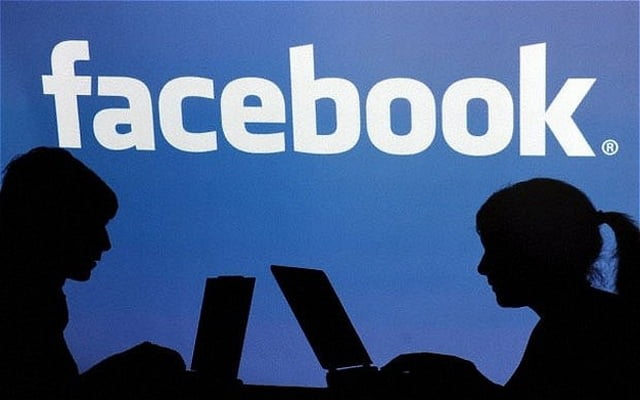
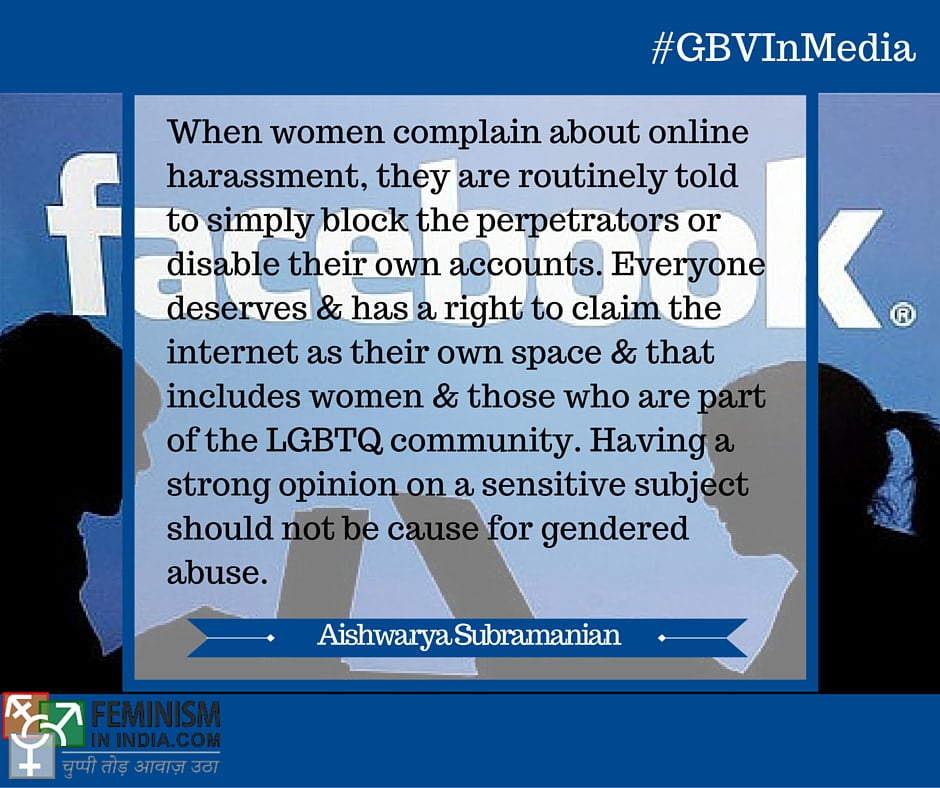 Dealing with those abusive messages
Dealing with those abusive messages